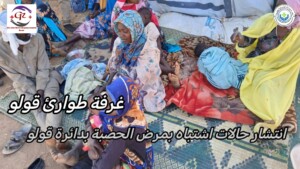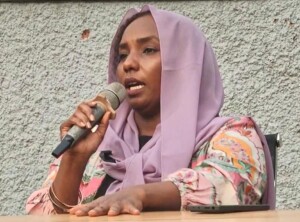No new diarrhoea cases recorded in Sudan’s El Roseires
The number of cases of watery diarrhoea in El Roseires locality in southern Sudan’s Blue Nile state has decreased by 28 per cent, says Dr Musab Ishag of the Roseiris Hospital. The National Umma Party (NUP) has criticised the national government for not intervening.
Ishag, who is in charge of treatment of watery diarrhoea in the hospital, lauded the efforts of NGOs and voluntary organisations in the area. “Thanks to their efforts, there are no records of any new cases.” He added that the conditions of the patients in the hospital are stable.
In a statement on Friday, the opposition NUP held the Sudanese government responsible for “the spread of watery diarrhoea in Blue Nile and Sennar states, because it refrained from urgent intervention”.
The number of cases of watery diarrhoea in El Roseires locality in southern Sudan’s Blue Nile state has decreased by 28 per cent, says Dr Musab Ishag of the Roseires Hospital. The National Umma Party (NUP) has criticised the national government for not intervening.
Ishag, who is in charge of treatment of watery diarrhoea in the hospital, lauded the efforts of NGOs and voluntary organisations in the area. “Thanks to their efforts, there are no records of any new cases.” He added that the conditions of the patients in the hospital are stable.
In a statement on Friday, the opposition NUP held the Sudanese government responsible for “the spread of watery diarrhoea in Blue Nile and Sennar states, because it refrained from urgent intervention”.
The party demanded Blue Nile state to be officially declared a disaster zone because of the watery diarrhoea epidemic. The government should assume responsibility by providing free medicines to the patients, and support to the hospitals.
The NUP further called on “the World Health Organisation and other organisations working in the field to intervene to save the lives of the people”.
In the second half of August, cases of watery diarrhoea were reported in the war-torn Blue Nile state, and in Sennar. Tests conducted by the Blue Nile state’s Health Ministry revealed that the watery diarrhoea is caused by bacteria.
The federal Health Ministry stated last week that the death toll had risen to 17 people. 416 people are infected.











 and then
and then